The Relationship between Cheese and Health
Is cheese a guilty pleasure or a healthful indulgence? This is a question that has been debated for years, with varying opinions from nutritionists, health enthusiasts, and cheese lovers alike. As we delve into the relationship between cheese and health, it's essential to understand the nuances and complexities involved.
Cheese has long been a staple in many cuisines around the world, revered for its rich flavors, creamy textures, and versatility in cooking and baking. However, the perception of cheese as a dietary villain has persisted, with concerns about its high fat and calorie content. This perception has led to a widespread belief that cheese should be consumed in moderation, if not avoided altogether, in the pursuit of a healthy lifestyle.
Interestingly, recent studies have shed new light on the nutritional value of cheese, challenging the long-held notion that it is simply a source of empty calories. In fact, cheese can be a valuable addition to a balanced diet, providing essential nutrients such as calcium, high protein, and vitamins A and B12. The key, as with many foods, lies in understanding the nuances of different cheese varieties and incorporating them into one's diet with mindfulness and moderation.
Common Misconceptions about Cheese and its Impact on Health
One of the most persistent misconceptions about cheese is that it is inherently unhealthy due to its high-fat content. While it's true that certain types of cheese can be high in saturated fat, the relationship between cheese consumption and health outcomes is more complex than a simple "high-fat, high-calorie" label would suggest.
Another common misconception is that cheese is a significant contributor to heart disease and other cardiovascular issues. However, recent research has challenged this assumption, suggesting that the relationship between cheese and heart health is not as straightforward as previously believed. In fact, some studies have indicated that the consumption of certain types of cheese may even have a neutral or even beneficial effect on cardiovascular risk factors if best diet plan is followed.
Additionally, there is a widespread belief that cheese is a major source of cholesterol, which can lead to an increased risk of high blood pressure and other health problems. While it's true that cheese does contain cholesterol, the impact of cheese consumption on blood cholesterol levels is more nuanced than this simplistic view would suggest. Factors such as the type of cheese, the overall dietary pattern, and individual genetic and metabolic differences all play a role in determining the effects of cheese on cholesterol levels.
The Nutritional Profile of Cheese
Cheese is a complex food, with a nutritional profile that varies widely depending on the type, production method, and other factors. However, in general, cheese can be a valuable source of several essential nutrients that are important for overall health.
One of the primary nutritional benefits of cheese is its high calcium content. Cheese is an excellent source of this essential mineral, which is crucial for maintaining strong bones and teeth, as well as supporting various other bodily functions. The calcium content in cheese can also help to mitigate the potential negative effects of its saturated fat content on cardiovascular health.
In addition to calcium, cheese also contains a significant amount of protein. This high-quality protein can help to support muscle growth and maintenance, as well as contribute to feelings of fullness and satiety. The specific amino acid profile of cheese protein can also have unique benefits, such as the potential for certain types of cheese to support immune function and reduce inflammation.
Cheese is also a source of several vitamins and minerals, including vitamins A, B12, and riboflavin, as well as phosphorus and zinc. These nutrients play important roles in various aspects of health, from vision and skin health to energy metabolism and immune function. The specific nutrient composition of cheese can vary depending on the type, sometime cheese is also included in diet plan for weight loss, but in general, cheese can be a valuable addition to a balanced and diverse diet.
Health Benefits of Consuming Cheese in Moderation
While the high-fat and calorie content of cheese has long been a source of concern, recent research has suggested that consuming cheese in moderation can actually provide a range of health benefits. One of the most notable benefits is the potential for cheese to support cardiovascular health.
Contrary to popular belief, several studies have found that the consumption of cheese, particularly certain types, may not have the negative impact on heart health that has been traditionally assumed. In fact, some research has even suggested that the consumption of cheese may have a neutral or even beneficial effect on cardiovascular risk factors, such as blood cholesterol levels and blood pressure.
The potential cardiovascular benefits of cheese may be attributed to the presence of certain fatty acids, such as conjugated linoleic acid (CLA), which have been linked to improved cholesterol profiles and reduced inflammation. Additionally, the calcium content in cheese may help to mitigate the potential negative effects of its saturated fat content on heart health.
Another potential health benefit of cheese is its role in supporting bone health. As mentioned earlier, cheese is an excellent source of calcium, which is essential for maintaining strong and healthy bones. This is particularly important as we age, as the risk of osteoporosis and other bone-related conditions increases. By incorporating cheese into a balanced diet, individuals can help to ensure that they are getting the necessary calcium and other nutrients to support optimal bone health.
The Role of Cheese in a Balanced Diet
While the health benefits of cheese are becoming increasingly recognized, it's important to note that not all cheeses are created equal. Different varieties of cheese can vary significantly in their nutritional composition, with some being higher in fat, salt, and other potentially problematic ingredients than others.
When it comes to incorporating cheese into a balanced diet, moderation is key. The recommended serving size for cheese is generally around 1-2 ounces, which can provide a satisfying and nutrient-dense addition to a meal or snack. By being mindful of portion sizes and choosing healthier varieties of cheese, individuals can enjoy the delicious taste and nutritional benefits of this dairy product without compromising their overall health.
It's also important to consider the broader context of one's diet when incorporating cheese. Cheese should not be viewed as a standalone health food, but rather as part of a larger, well-rounded eating pattern that includes a variety of nutrient-dense foods, such as fruits, vegetables, whole grains, and lean proteins. By striking a balance and incorporating cheese as one component of a balanced diet, individuals can enjoy the culinary and nutritional benefits of this versatile dairy product while maintaining overall health and wellness.
Potential Risks and Considerations When Consuming Cheese
While the health benefits of consuming cheese in moderation are becoming increasingly recognized, it's important to acknowledge that there are also potential risks and considerations to be aware of. One of the primary concerns with cheese consumption is its high-fat and calorie content, which can contribute to weight gain and other health issues if consumed in excess.
Additionally, certain types of cheese can be high in sodium, which can be a concern for individuals with high blood pressure or other cardiovascular conditions. It's important to be mindful of the sodium content of different cheese varieties and to incorporate them into a balanced diet that limits overall sodium intake.
Another potential risk associated with cheese consumption is the presence of certain foodborne pathogens, such as Listeria monocytogenes, which can be particularly dangerous for pregnant women, young children, and individuals with compromised immune systems. While the risk of foodborne illness from cheese is generally low, it's important to practice proper food safety and hygiene when handling and consuming cheese, particularly unpasteurized varieties.
Finally, it's important to consider the potential impact of cheese consumption on specific health conditions, such as lactose intolerance, diabetes, and kidney disease. Individuals with these or other health concerns should consult with a healthcare professional to determine the appropriate role of cheese in their diet and to ensure that it is being consumed in a way that supports their overall health and well-being.
Cheese and Its Impact on Specific Health Conditions
While the relationship between cheese and overall health is complex, there are certain health conditions that may be impacted by the consumption of cheese. It's important to understand these potential impacts to make informed decisions about incorporating cheese into one's diet.
For individuals with lactose intolerance, the consumption of cheese may be a concern, as many cheese varieties contain lactose, the natural sugar found in dairy products. However, it's important to note that the lactose content of cheese can vary significantly, with some varieties, such as aged cheeses, containing very little lactose. Individuals with lactose intolerance may be able to consume certain types of cheese without experiencing adverse symptoms.
Individuals with diabetes may also need to be mindful of their cheese consumption, as cheese can be a source of saturated fat and calories, which can impact blood sugar levels and overall metabolic health. However, the high protein content of cheese may also be beneficial for individuals with diabetes, as it can help to promote feelings of fullness and support stable blood sugar levels. As with any dietary choice, individuals with diabetes should consult with a healthcare professional to determine the appropriate role of cheese in their overall eating plan.
For individuals with kidney disease, the consumption of cheese may also be a consideration, as some cheese varieties can be high in sodium and phosphorus, which can be problematic for individuals with impaired kidney function. In these cases, it's important to work closely with a healthcare team to identify the appropriate types and amounts of cheese that can be safely incorporated into the diet.
Tips for Incorporating Cheese into a Healthy Lifestyle
Given the potential health benefits and considerations associated with cheese consumption, it's important to approach this dairy product with mindfulness and moderation. Here are some tips for incorporating cheese into a healthy lifestyle:
Choose wisely: Not all cheeses are created equal. Opt for varieties that are lower in saturated fat, sodium, and additives, such as hard cheeses, cottage cheese, and ricotta.
Watch your portions: Stick to the recommended serving size of 1-2 ounces per serving to enjoy the benefits of cheese without overindulging.
Pair cheese with nutrient-dense foods: Combine cheese with fruits, vegetables, whole grains, and lean proteins to create a balanced and satisfying meal or snack.
Experiment with different types: Explore a variety of cheese types, such as cheddar, gouda, brie, and feta, to find the ones that you enjoy the most and that fit best with your dietary needs.
Consider the source: When possible, opt for cheese made from high-quality, minimally processed ingredients and produced by reputable brands or local artisanal producers.
Practice food safety: Follow proper food handling and storage guidelines to reduce the risk of foodborne illness, particularly with unpasteurized cheese varieties.
Consult with a healthcare professional: If you have any specific health concerns or conditions, work with a registered dietitian or your healthcare provider to determine the appropriate role of cheese in your diet.
By following these tips and incorporating cheese into a balanced, nutrient-dense diet, individuals can enjoy the culinary and nutritional benefits of this versatile dairy product while maintaining overall health and wellness.
How to Choose the Healthiest Types of Cheese
When it comes to choosing the healthiest types of cheese, it's important to consider a variety of factors, including the nutritional profile, production methods, and potential health impacts. Here are some guidelines for selecting the healthiest cheese options:
Opt for hard, aged cheeses: Hard, aged cheeses, such as cheddar, parmesan, and gouda, tend to be lower in moisture and higher in protein and calcium compared to softer, younger cheeses. They also often have a more concentrated flavor, allowing you to use smaller portions.
Choose low-fat or reduced-fat varieties: Look for cheese options that are labeled as "low-fat" or "reduced-fat." These varieties can provide the same great taste while reducing the overall fat and calorie content.
Prioritize minimally processed cheeses: Avoid highly processed cheese products, such as cheese spreads and cheese dips, which may contain additional additives, preservatives, and unhealthy fats. Opt for cheeses that are minimally processed and made with simple, natural ingredients.
Consider artisanal and organic options: Artisanal and organic cheese producers often use high-quality, minimally processed ingredients and traditional production methods, which can result in a more nutrient-dense and flavorful product.
Be mindful of sodium content: Some cheese varieties, particularly processed and pre-packaged options, can be high in sodium. Look for low-sodium or reduced-sodium varieties to limit your overall sodium intake.
Explore different cheese types: Don't be afraid to try new and diverse cheese options, such as goat cheese, sheep's milk cheese, or blue cheese. Each type can offer unique nutritional profiles and health benefits.
Consult with a healthcare professional: If you have any specific dietary needs or health concerns, work with a registered dietitian or your healthcare provider to determine the best cheese options for your individual situation.
By following these guidelines and being mindful of the nutritional profile and production methods of different cheese varieties, you can enjoy the delicious taste of cheese while prioritizing your overall health and well-being.
Conclusion: Cheese can be enjoyed as Part of a Healthy Diet
In conclusion, the relationship between cheese and health is a complex and nuanced one. While cheese has long been perceived as a dietary villain due to its high-fat and calorie content, recent research has shown that this perception may be overly simplistic. In fact, cheese can be a valuable addition to a balanced and healthy diet, providing essential nutrients such as calcium, protein, and vitamins.
However, it's important to note that not all cheeses are created equal. Different varieties can vary significantly in their nutritional composition, with some being higher in saturated fat, sodium, and other potentially problematic ingredients. As with any food, moderation and mindful choices are key when it comes to incorporating cheese into one's diet.
By understanding the nuances of cheese and its potential health benefits and risks, individuals can make informed decisions about how to best incorporate this delicious dairy product into their overall eating patterns. Whether it's enjoying a small portion of artisanal cheese as a satisfying snack or incorporating cheese into a nutrient-dense meal, cheese can be a delicious and healthful indulgence when consumed as part of a balanced and diverse diet.
So, the next time you reach for a slice of cheese, take a moment to savor the flavors and appreciate the potential health benefits it can offer. With a little bit of mindfulness and moderation, cheese can be a delightful and nutritious addition to a healthy lifestyle.











Leave a comment